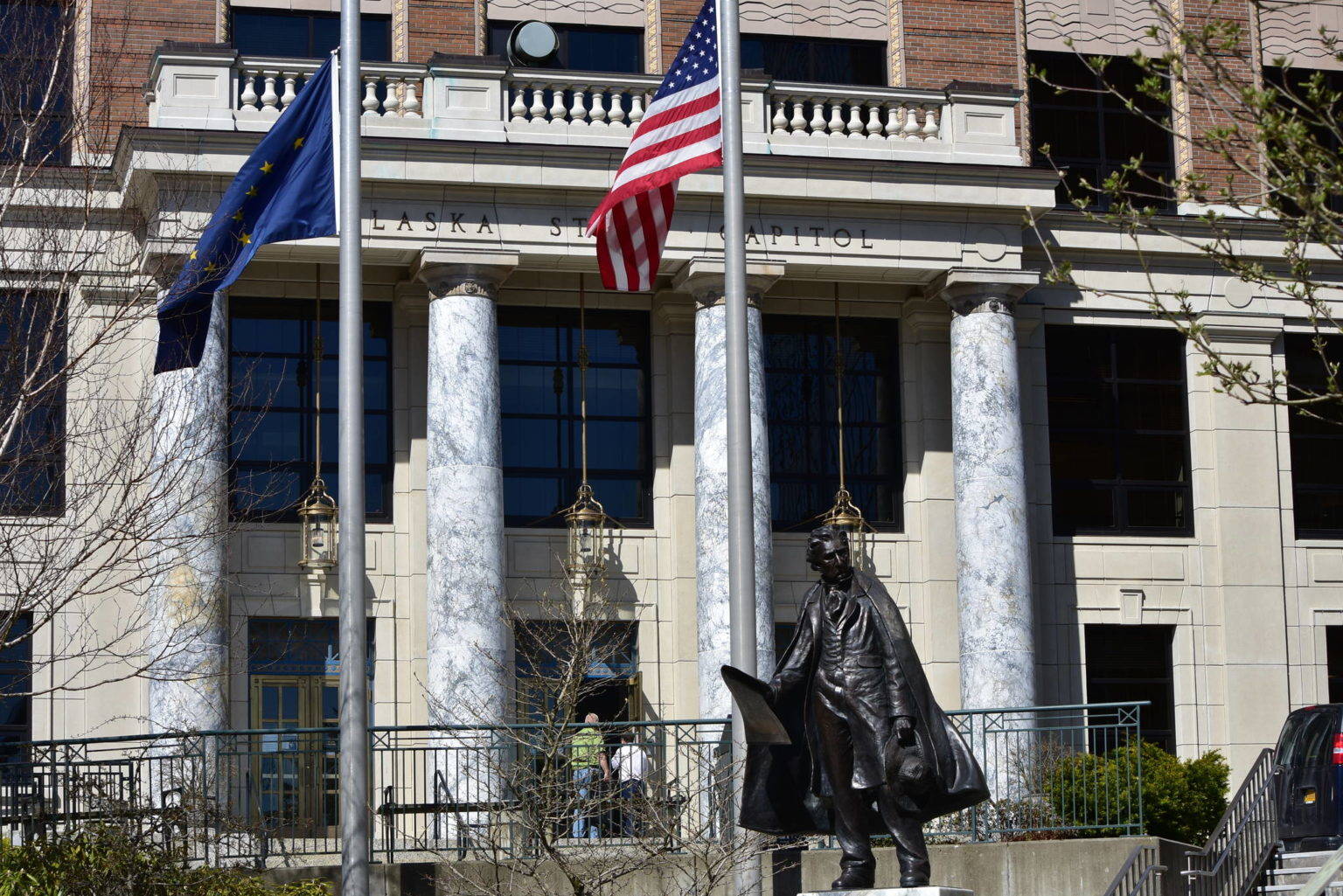By Becky Bohrer
Associated Press
JUNEAU — The great guessing game heading into fall used to center on how big a check Alaska residents would get from the state’s oil wealth fund. This year, it’s at zero due to legislative disputes that remain unresolved ahead of a third special session this year.
A budget plan that emerged from House and Senate negotiators in June called for a roughly $1,100 dividend, with money cobbled together from various sources, including a reserve fund that requires three-fourths support in each chamber to access. The vote failed, leaving the dividend at $525, an amount Republican Gov. Mike Dunleavy called a “joke” and vetoed.
The agenda for the special session starting Monday doesn’t include an appropriations bill for a dividend. Dunleavy, who set the agenda, said in an interview with The Associated Press that he wants lawmakers to take up his proposal to restructure the oil wealth fund and place in the state Constitution a new dividend formula. Then, he said, “we can look at other things that need to be looked at.”
Dunleavy spokesperson Jeff Turner has said budget issues, including a dividend, “can be addressed at the appropriate time by adding an appropriation bill” to the agenda.
Senate Finance Committee co-chairman Bert Stedman, a Sitka Republican, sees that approach as an attempt to try to “leverage” the dividend, “and I don’t think the Legislature is going to deal very well with it.”
“Normally, when you have a special session, you work out the details with the leadership teams, and you come up with a rough idea of what the outcome’s going to be and then you have a special session,” he said. “When you don’t do that, your special sessions normally end up with just consuming a lot of people’s time and a lot of state money, and they don’t accomplish anything. And I think that’s what is likely to happen in this special session.”
House Minority Leader Cathy Tilton, a Wasilla Republican, said her caucus would like to see movement on a fiscal solution “before maybe feeling comfortable with moving onto some kind of appropriations bill.” But she said a resolution on a dividend for this year is needed. Alaskans expect a dividend, and ensuring they receive one is a priority, she said.
Senate President Peter Micciche, a Soldotna Republican, said lawmakers and Dunleavy need to work together on a dividend and budget issues. He also said he’s hopeful for progress on a fiscal plan and toward ending the perennial dividend debates.
“I think if I were to say that we must leave special session with 100% of a fiscal plan hammered out and passed, I would be sort of painting an extremely unrealistic picture,” he said.
For years, dividends were calculated using a formula, but in 2016, then-Gov. Bill Walker cut the amount available for checks amid budget deficits. The Alaska Supreme Court later ruled that without a constitutional amendment, the dividend must compete for funding like other programs.
Debate over the check size in recent years has become politically charged and overshadowed other issues.
Dunleavy has gotten support from lawmakers in wanting to resolve the debate, but lawmakers have yet to coalesce behind a specific approach. A working group that includes two members from each legislative caucus has been tasked with making recommendations for a fiscal plan for the special session.
Lawmakers in 2018 began using oil wealth fund earnings, long tapped to pay dividends, to also help pay for government, and they sought to limit what can be withdrawn each year for those purposes. Dunleavy is proposing rolling the earnings into the fund’s principal and calling for a limited withdrawal — one that’s split 50/50 between dividends and government.
He outlined the approach in May, after arguing for years that the longstanding dividend formula should be followed until it’s changed. Proposed constitutional amendments require two-thirds support in each the House and Senate to advance to the ballot, and Dunleavy wants a vote on his plan.
“We’re going to do our best to present as many options as possible to try and get them to bring something to the floor so the people of Alaska at least can see where people stand on the issues — but more importantly to try and solve them,” he said.
Revenue Commissioner Lucinda Mahoney presented the working group with a list of revenue measures she said Dunleavy would support if lawmakers supported them, including a sales tax, legalized gambling and raising the motor fuels tax.
Dunleavy told the AP that he would consider possible revenue if they were part of a package that included a “meaningful” constitutional spending limit.
Senate Minority Leader Tom Begich, an Anchorage Democrat, said he doesn’t “see the will for a 50/50” plan in the Legislature.
Some lawmakers are concerned with the costs, and some don’t think the dividend or a dividend formula should be in the state Constitution.
“I think this session lands us on the shoal that shows that we’re not going to get 50/50 and we’re not going to get 80/20,” Begich said, referring to a proposal that would designate 20% of a draw to dividends.
That would leave lawmakers to work from there later this year or during the next regular session in January, he said.
Dunleavy, who has spent much of his term under threat of a recall effort initially fueled by public anger over proposed budget cuts, filed a letter of intent to seek reelection Friday.


